Bryan Johnson, known for spending $2M annually to reverse his body’s aging process, stopped taking a drug that had been tested on mice after experiencing severe side effects.
The businessman had discussed its “longevity benefits” in his Netflix documentary, Don’t Die: The Man Who Wants To Live Forever.
Johnson consumed 13 milligrams of the immunosuppressant rapamycin every two weeks, which is used by transplant patients to prevent organ rejection.
- Bryan Johnson stopped taking rapamycin due to severe side effects.
- Rapamycin, tested on mice, is not FDA approved for anti-aging.
- Johnson's Project Blueprint aims to reverse his body's natural aging process.
Bryan Johnson, the man who spends millions to reverse his body’s natural aging process, shared the side effects of a “longevity” medication
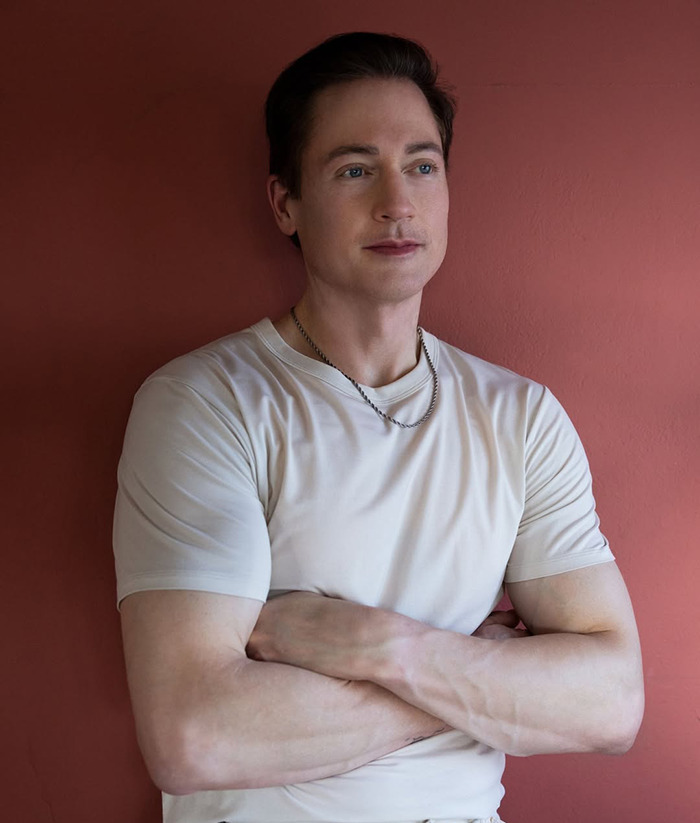
Image credits: bryanjohnson_
Though it’s not FDA-approved for anti-aging, rapamycin is being prescribed off-label for that purpose, as it has been shown toextend the healthy lifespan of mice, theNY Postreported.
Johnson had been taking rapamycin for five years and stopped last September.
“I take this because there’s potentially some longevity benefits,” the 47-year-old explained in his documentary. “It’s the kind of thing in the longevity community that people are excited about.”
“Outside the longevity community, it’s still kind of crazy, like [if you say], ‘Yeah, I take an immune-suppressing drug.’ [People react], ‘Like, that’s wacky and why would you ever do that?'”
Image credits: bryanjohnson_
In a recentsocial media post, the billionaire revealed that rapamycin had caused several side effects, including skin infections, abnormal levels of fat in his blood, elevated glucose levels, and an increased resting heart rate.
“I have tested various rapamycin protocols including weekly (5, 6, and 10 mg dose schedules), biweekly (13 mg) and alternating weekly (6/13mg) to optimize rejuvenation and limit side effects,” he explained on November 14.
“Despite the immense potential from pre-clinical trials, my team and I came to the conclusion that the benefits of lifelong dosing of rapamycin do not justify the hefty side-effects.”
Citing a study published in October 2024, he concluded that rapamycin “increased biological aging according to two [measures], while ineffective according to the others.”
For five years, Johnson took rapamycin, which has been shown to extend the healthy lifespan of mice
Image credits: Netflix/Tudum
In October 2021, Johnson caused controversy by announcing Project Blueprint, a series of treatments aimed at reversing his biological age,Bored Panda previously reported.
This involves ingesting dozens of pills daily, a strict 2,250-calorievegan diet, and daily exercises—a regimen that reportedly costs him $2 million per year to maintain.
Thetech mogul stated that he is succeeding in his mission and celebrates his birthday every 19 months now because he’s “dramatically slowed [his] speed of aging.”
Doctors featured in the documentary had previously raised concerns about Johnson’s rapamycin use.
Image credits: Bryan Johnson
Dr. Vadim Gladyshev, a professor of medicine at Harvard Medical School, emphasized the need for “properly designed experiments” to thoroughly test rapamycin’s anti-aging properties.
Dr. Oliver Zolman, who stated that he aims to “reverse aging in all 81 organ types,” warned that the antibiotic could cause “very dangerous bacterial infections, pneumonia, cellulitis, or pharyngitis.”
In May 2023, Johnson made headlines for undergoing a multigenerationalplasma exchange with his 70-year-old father, Richard, and his 17-year-old teenage son, Talmage.
Rapamycin is used to keep the body from rejecting organ and bone marrow transplants
Image credits: Netflix
Image credits: bryanjohnson_
However, three months later,he announced that he would discontinue the blood-swapping therapy after detecting no anti-aging benefits from it.
Johnson also startedProject Baby Face. “Hearing my face is not an 18-year-old’s; commencing project Baby Face. In case you’re wondering, we’ve focused on maximally slowing my speed of aging, now at .76 (ranking #1 on the leaderboard),” he wrote.
The biohacker believes that facial fat can influence how people perceive youth. As a result, he injected a donor’s fat into his face. Doctors reportedly informed him that using his own body fat would pose risks because he couldn’t afford to lose any more of it.
After the procedure, heexperienced an adverse reaction when his body rejected the donor’s fat. “Immediately following the injections, my face began to blow up,” he shared.
Johnson reported that the drug caused several side effects, including skin infections and an increased heart rate
Image credits: RPI Research Products International
Image credits: Netflix
“And then it got worse, and worse, and worse until I couldn’t even see. It was a severe allergic reaction.”
He added: “It was a promising technology, we were excited about it, and we thought it might be a really good path to revolumize, but because I reacted so profoundly, we just couldn’t continue it, so that stopped after one therapy.”
In an interview withGood Morning Britain, the anti-aging mogul said his goal was to make “death optional.”
The tech mogul takes dozens of pills daily and follows a strict diet as part of his attempt to become the “first generation to not die”
Image credits: Netflix
Image credits: Netflix
“We dare to ask, will we be the first generation to not die?”Project Blueprint’s website notes in a section titled “Rebel against aging.”
Johnson has also developed a health app calledDon’t Die that lets users track “how much daily progress they are making towards longevity best practices.”
“He’s missing out on life by worrying about it,” a reader pointed out
Poll Question
Thanks! Check out the results:
Explore more of these tags
Every time I see his name in a headline, I think it’s gonna be a story about how he’s died from effing up his body. I don’t think this experiment is gonna end well at all. I remember when I was ten and my only grandmother was dying of stomach cancer and I was watching her waste away and thinking “*I’ll* never die; I’ll figure out a way to escape it!” Of course, now that I’m in the latter part of my life, I’m aware that I’m gonna very much look forward to it someday, and I no longer understand wanting to live forever. If there were no death, the planet would simply fill up with people who can’t be housed, fed, and treated medically. That’s not “life.” This man strikes me as stupid, not clever.
The unspoken part of "living forever" is that its only for "those who can afford it"
Load More Replies..."Though it’s not FDA-approved for anti-aging, rapamycin is being prescribed off-label for that purpose, as it has been shown to extend the healthy lifespan of mice, the NY Post reported." Mr. Johnson dropped out of the study as his tail and whiskers were getting too long for him to get around comfortably.
Mice have similar immune responses, aging processes, and hormone systems as humans. They also share ~80% of our genes.
Load More Replies...When watching the Netflix documentary, despite all the medical tests saying how healthy he is, he doesn't look healthy beyond his muscle tone. His skin color looks sickly, like he's undernourished, or lived underground his whole life with no sun exposure. Reminds me of the Morlocks from the Time Machine. Hope the dude's happy, but his life looks miserable and empty.
That‘s what i‘m thinking all the time. His body is toned and he has full hair, but he looks like an android. I think he usually avoids sun and you can totally see it. If he‘s happy, everything is fine. Personally i believe sometimes less is more. He just does too much and it‘s overpowering on him. If you want the chance to live a long healthy life, eat healthy, drink a lot especially high quality teas, take the right supplements if needed, get your health check ups and then adjust your habits, work out, lower you stress levels, be happy, be happy, have a purpose in life and enjoy your life :). Usually that‘s what the older healthy generation have done in their life.
Load More Replies...Every time I see his name in a headline, I think it’s gonna be a story about how he’s died from effing up his body. I don’t think this experiment is gonna end well at all. I remember when I was ten and my only grandmother was dying of stomach cancer and I was watching her waste away and thinking “*I’ll* never die; I’ll figure out a way to escape it!” Of course, now that I’m in the latter part of my life, I’m aware that I’m gonna very much look forward to it someday, and I no longer understand wanting to live forever. If there were no death, the planet would simply fill up with people who can’t be housed, fed, and treated medically. That’s not “life.” This man strikes me as stupid, not clever.
The unspoken part of "living forever" is that its only for "those who can afford it"
Load More Replies..."Though it’s not FDA-approved for anti-aging, rapamycin is being prescribed off-label for that purpose, as it has been shown to extend the healthy lifespan of mice, the NY Post reported." Mr. Johnson dropped out of the study as his tail and whiskers were getting too long for him to get around comfortably.
Mice have similar immune responses, aging processes, and hormone systems as humans. They also share ~80% of our genes.
Load More Replies...When watching the Netflix documentary, despite all the medical tests saying how healthy he is, he doesn't look healthy beyond his muscle tone. His skin color looks sickly, like he's undernourished, or lived underground his whole life with no sun exposure. Reminds me of the Morlocks from the Time Machine. Hope the dude's happy, but his life looks miserable and empty.
That‘s what i‘m thinking all the time. His body is toned and he has full hair, but he looks like an android. I think he usually avoids sun and you can totally see it. If he‘s happy, everything is fine. Personally i believe sometimes less is more. He just does too much and it‘s overpowering on him. If you want the chance to live a long healthy life, eat healthy, drink a lot especially high quality teas, take the right supplements if needed, get your health check ups and then adjust your habits, work out, lower you stress levels, be happy, be happy, have a purpose in life and enjoy your life :). Usually that‘s what the older healthy generation have done in their life.
Load More Replies...
 Dark Mode
Dark Mode 

 No fees, cancel anytime
No fees, cancel anytime 






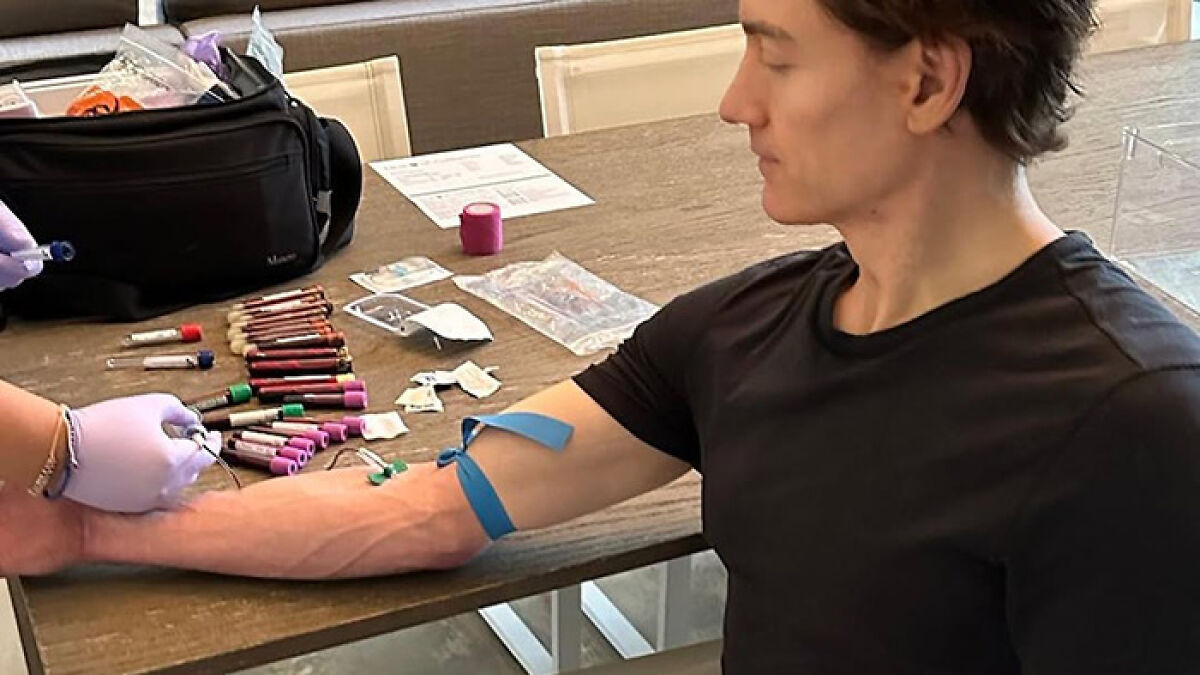
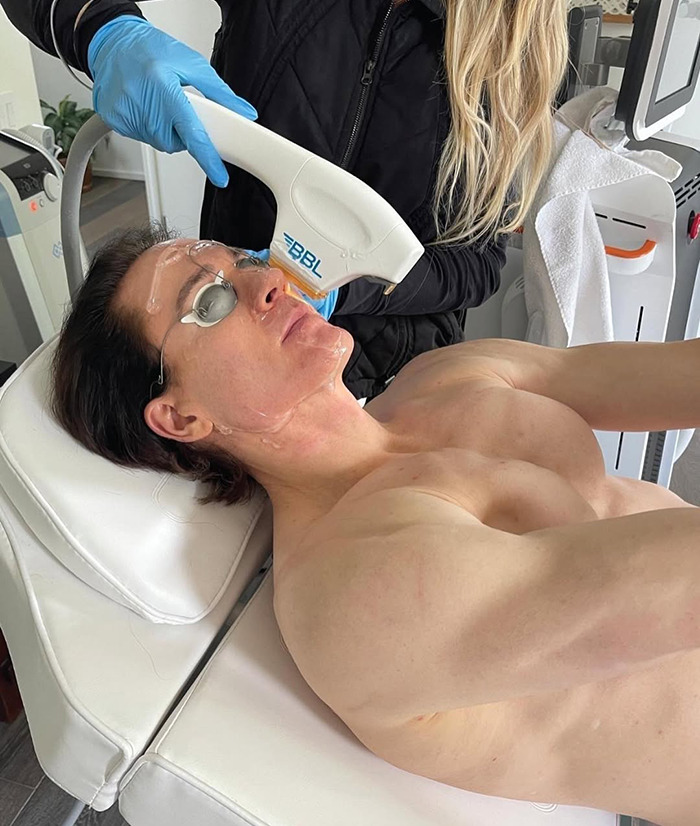
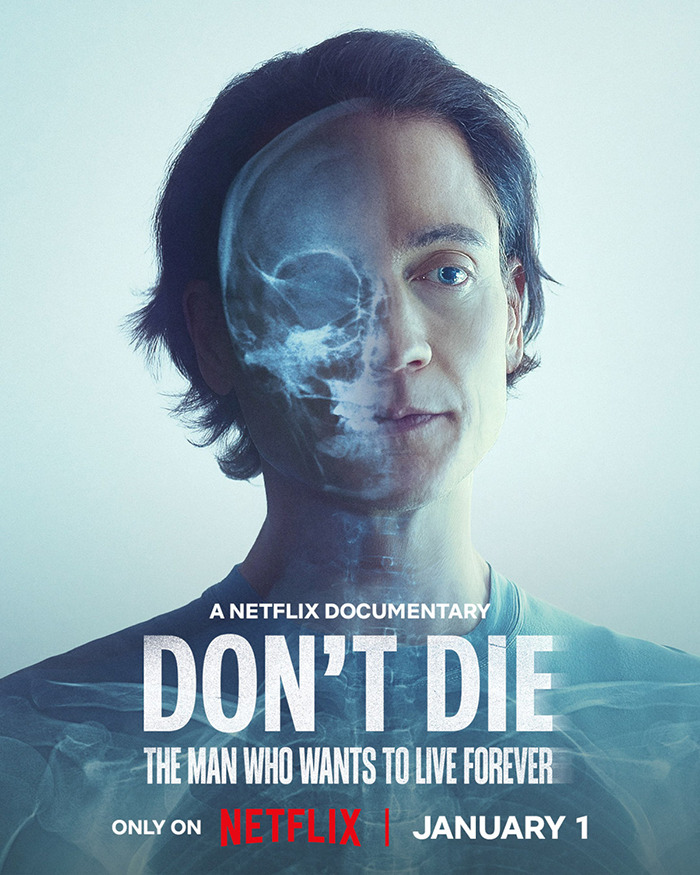
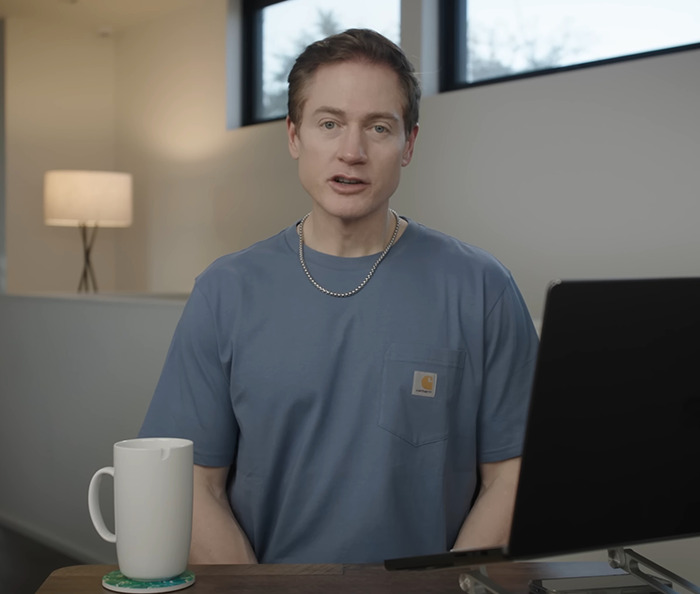
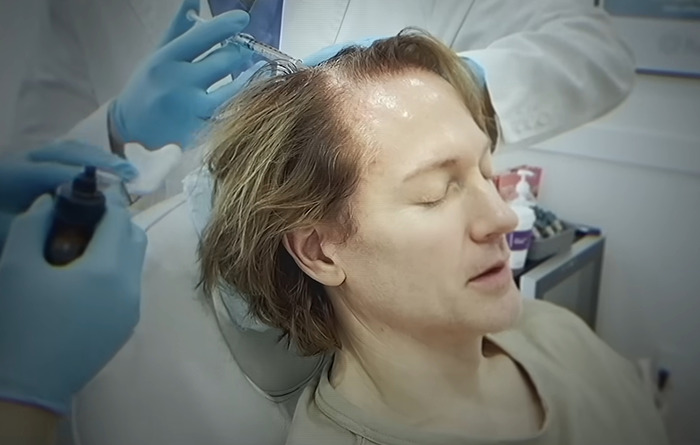
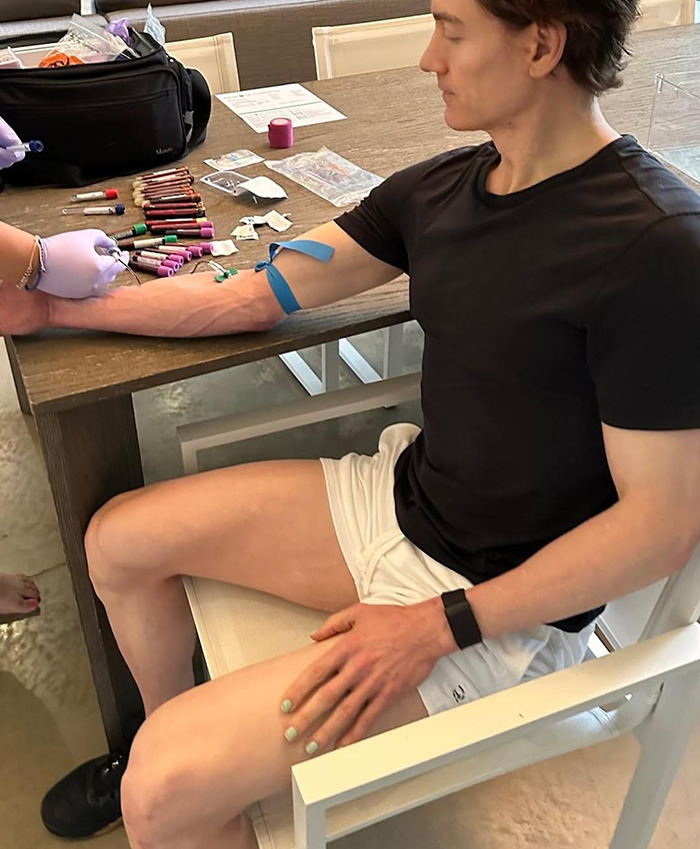
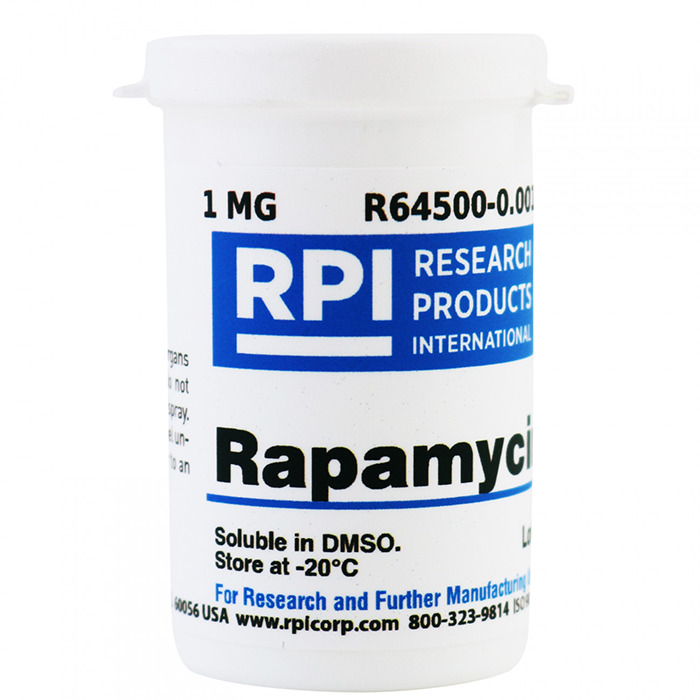
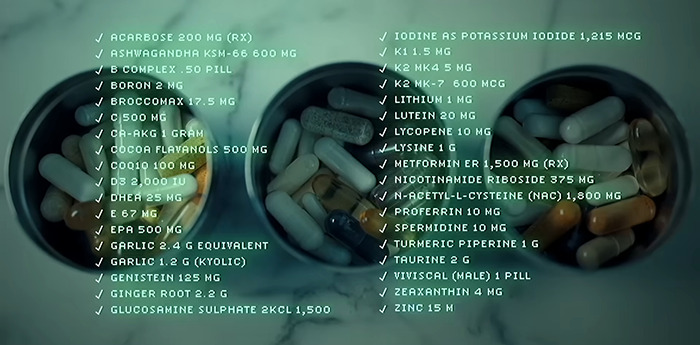
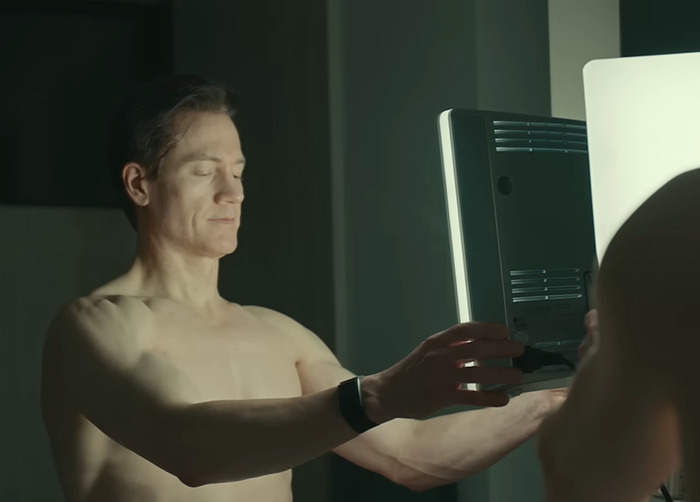
































































8
66